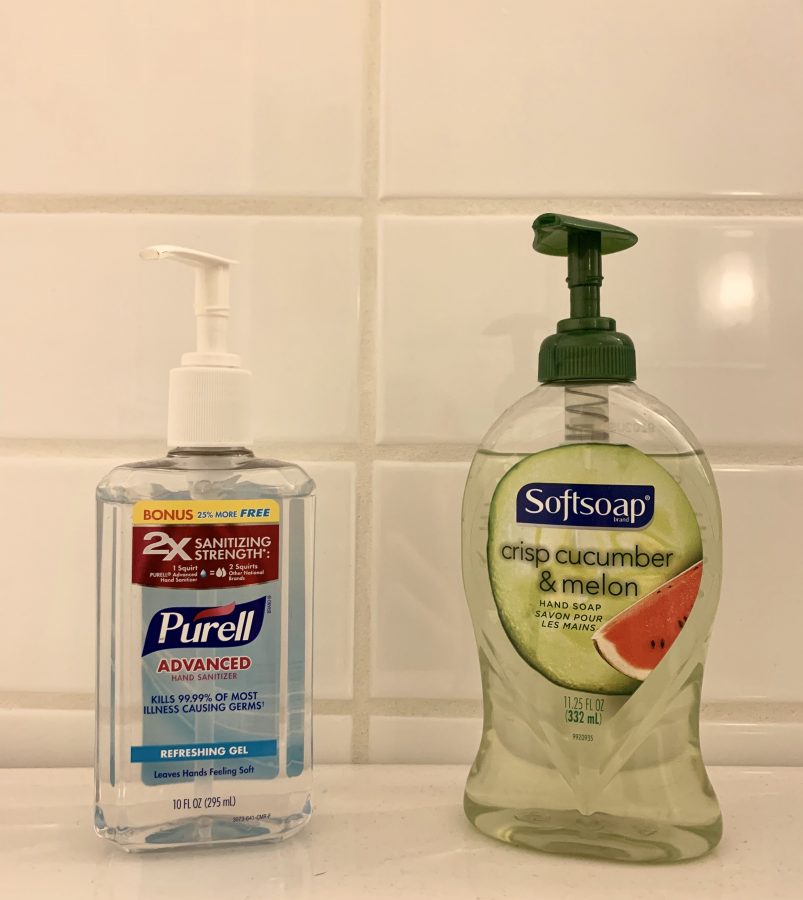How to reduce the risk of sickness this flu season
November 11, 2019
The start of the school year brings football games, pep rallies, new classes and, of course, sickness. Manheim Township High School has over 2,000 students and is no doubt a zone full of contaminants and germs. Unless students take the proper precautions, they are constantly at risk of infection through contact with shared surfaces, such as lockers, doorknobs, chairs, and desks. Listed are suggestions from the school nurses on ways to combat infectious diseases:
1. Washing your hands is essential. The best way to clean your hands is not with hand sanitizer, but with regular soap and water. While washing your hands removes only the harmful germs, hand sanitizer eliminates not only germs, but also disease-fighting bacteria meant to resist infectants; therefore, hand sanitizer can contribute to a greater vulnerability to disease.
2. Do not share water bottles. Several Manheim Township students participate in athletics, and it isn’t uncommon for athletes to use each other’s water bottles. These bottles have a uniquely designed cap that squirts water so the mouth-to-bottle contact is not needed. Nevertheless, bringing your own water is the best idea, as these shared water bottles might not be properly cleaned, and there is also the possibility of unintentional cross-contamination.
3. Stay home when you are sick. If you are diagnosed with a contagious illness, staying home will not only improve your health but also hinder the spread of disease. Choosing to be at home and resting improves productivity when you return.
4. Get vaccinated. Although they have sparked unfounded controversy, vaccines, stop the spread of viral diseases. Usually administered in the fall, annual flu shots are suggested because the flu is a mutating disease, meaning that last year’s vaccine will not stave off this year’s strain. Vaccines are crucial to limiting the spread of aggressive viral illnesses.
5. Use antibiotics sensibly. Antibiotics treat bacterial infections like strep throat. Make sure to administer antibiotics safely and take the prescribed amount for the entire duration of the prescription plan even if you feel better. If you stop, the latent infection may still be present and can reinfect. Using antibiotics with care is essential to students’ health.
6. Be aware of hygiene. General hygienic practices, such as brushing your teeth, taking frequent showers, eating healthy, and exercising, ward off diseases. This creates less harmful bacteria. Awareness of hygiene means fewer illnesses in the school.
MTHS Students are very active and involved, and they work rigorously to achieve academic and athletic excellence. Given the extraordinary emphasis on performance in our school, disease prevention is crucial to improving the productivity of students. If we as a school committed to trying to prevent diseases, we will improve as a unit.












